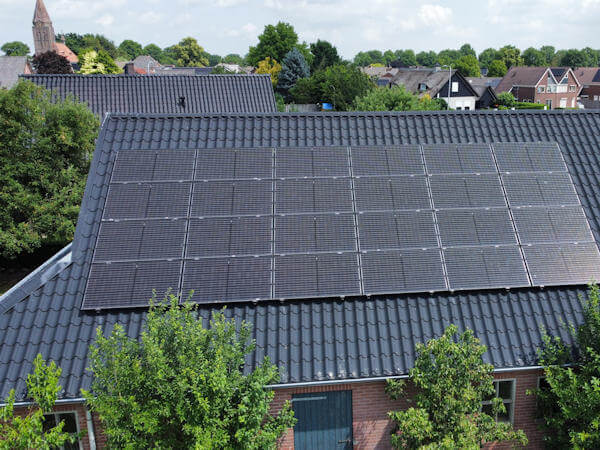Den Haag · The controversial net metering regulation for solar panels, a central element in promoting renewable energies, will remain in place for the coming years. Despite the caretaker cabinet's plans to abolish this regulation, the Senate faction of GroenLinks-PvdA (Eerste Kamer), with a decisive majority, has stood against the changes. This marks a significant victory for owners of solar panels and sets a strong signal in support of renewable energies.
In a remarkable move, the Senate faction of GroenLinks-PvdA has decided not to support the caretaker cabinet's plans to abolish the net metering regulation for solar panels. This decision means that the regulation, which has been a crucial support for investment in solar panels since 2004, will continue to exist in the coming years.
The net metering regulation allows households with solar panels to directly offset the energy they produce against their energy consumption, significantly reducing their energy costs. Additionally, energy units produced in this way are not taxed, creating a financial incentive for the installation of solar panels.
Despite the increasing popularity of this regulation and the associated loss of revenue for the state, estimated at around 2.8 billion euros by 2031, the Senate faction has spoken out against the planned abolition. The caretaker cabinet had argued that the regulation was no longer necessary due to the decreasing costs of solar panels and the faster amortization of investments. Critics, including the Senate faction of GroenLinks-PvdA, however, feared that abolishing the regulation could destabilize the market for solar panels and disadvantage particularly households with lower incomes and tenants.
Caretaker Minister Rob Jetten for Climate and Energy had attempted to dispel concerns regarding the payback time of investments in solar panels by assuring that it would remain between seven and nine years. Despite these and other concessions, including support for the acceleration of the installation of solar panels in rental apartments, it was not enough to gain the support of the Senate faction.
The decision to maintain the net metering regulation has been welcomed by various consumer and industry associations, seeing it as a necessary measure to promote renewable energies and protect consumer interests. Critics of the decision, however, point out that maintaining the regulation could lead to increased costs for energy companies, which ultimately would be passed on to all consumers.
The debate around the net metering regulation and the promotion of renewable energies in Germany will undoubtedly continue. However, the decision by the Senate faction of GroenLinks-PvdA sets a clear signal for the importance of environmental protection and the support of renewable energy sources in the current political landscape.
Net Metering Explained: How Solar Panel Owners Benefit from the Sun
As the energy transition progresses, the topic of solar energy is becoming increasingly important. A key role in this is played by the so-called net metering (German: "Saldieren"), a term that may not yet be familiar to many outside the energy industry, but whose principle significantly contributes to the attractiveness of solar panels on private roofs. But what exactly is behind this complex-sounding process?
Simply put, net metering allows owners of solar panels to optimally use the energy they produce. Imagine your solar panel system on the roof generates more electricity on a sunny day than you can consume at the moment. Instead of letting this surplus go to waste, it is fed into the public power grid. For every kilowatt-hour (kWh) that you provide to the grid in this way, you receive a credit. If you need energy from the grid at a later time, for example at night when your system does not produce electricity, you can use these credits to cover the costs. In short: you exchange your surplus solar electricity for grid electricity when you need it.
This process offers several advantages. On the one hand, solar panel owners can significantly reduce their energy bill since they do not have to pay network fees or energy taxes for the electricity they generate and consume themselves. On the other hand, it promotes the use of renewable energies and thus contributes to environmental protection. Moreover, it helps to reduce the load on the power grids and ensures a more efficient use of the available resources.
Despite these advantages, there are also challenges and criticisms. It is argued that the current design of net metering unequally distributes the costs for the maintenance and expansion of the power grids. Owners of solar panels would contribute less to these costs, even though they use the grid just as much. In addition, households without solar panels could indirectly bear the costs of subsidizing solar panel owners. Against this background, adjustments to the net metering regulations are being discussed in some countries to achieve a fairer cost distribution while still making the use of renewable energies attractive.
Net metering thus exemplifies the complex challenges of the energy transition. It highlights the importance of a balanced approach that considers both ecological and economic aspects while keeping the interests of all stakeholders in mind. For non-technical readers, it is especially important to understand that net metering is not just a technical accounting method, but an essential component on the path to a more sustainable and equitable energy supply.





